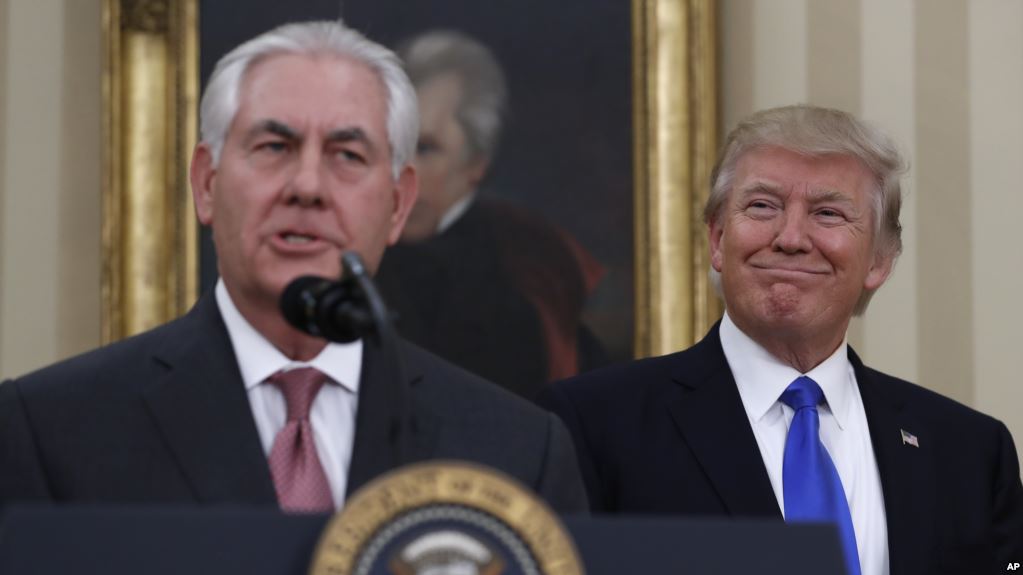By Kaitlin Dippolito
Today’s diplomatic sphere hinges on a tweet. Recently, North Korea and the United States have been lobbing insults back and forth, using nicknames like “Little Rocket Man” and “old war maniac.” While such remarks may not seem out of place on an elementary school playground, they mark a swift departure from the traditional respect and cooperation with which the United States has typically conducted diplomatic relations. Congress and the United States Supreme Court give great deference to the President in issues of international relations because the President is the only member of the government who routinely interacts with other nations’ leaders, but President Donald Trump seems to view the global sphere as another place to pitch his “Make America Great Again” campaign rather than as part of the job he now holds.
Central to this dispute is nuclear capability, something North Korea touts, and something the United States attempts to prevent other nations from obtaining. The United States and Iran have never been friendly, but former President Barack Obama pursued and eventually established a deal with the Iranian government regarding their nuclear capabilities in an attempt to safeguard the United States. The stated goal was to prevent Iran from developing the materials necessary to create a working nuclear bomb, because nuclear capabilities are both dangerous and unwise considering the current instability of the Iranian government. Given the destruction witnessed in Hiroshima and Nagasaki, one would hope that today’s leaders would take serious steps towards mitigation before reaching for a nuclear weapon. Unfortunately, that does not appear to be President Trump’s tactic.
Secretary of State Rex Tillerson recently returned from China, where he attempted to garner support for a diplomatic end to the United States-North Korea war of words from one of North Korea’s biggest trading partners. He claims that multiple lines of communication are open and that he is open to a discussion, but the public has yet to see any evidence of negotiation. President Trump further complicated the situation by tweeting Secretary Tillerson “is wasting his time trying to negotiate” in the same tweet in which he called Kim Jong-un “Little Rocket Man.” While the disrespect towards Secretary Tillerson is evident, the disrespect towards North Korea, in addition to China, deserves a deeper look.
President Trump could be orchestrating some master foreign policy plot that the public and political analysts alike have failed to understand, but it is much likelier that President Trump does not understand the people with whom he is now dealing. Kim Jong-un, like his father before him, is not known for his easygoing manner or willingness to talk to the United States, and past administrations have struggled to determine the best way to deal with North Korea. In the 67 years since the Korean War began, little has changed in regard to the two nations’ hostility towards each other. In addition, it is difficult for United States’ intelligence to accurately estimate North Korea’s nuclear capabilities because of how closed-off the area is to the outside world. President Trump is walking into what could be an fatal situation if mishandled, and it remains difficult to ascertain whether or not he is aware of the risks. Furthermore, Tillerson’s visit to China brings up an important issue; fully alienating North Korea might mean strained diplomatic tensions with China.
Taking a hard stance on North Korea during an election is one situation; vowing to “totally destroy” an entire country while giving a speech at the world’s peacemaking body is an entirely different one. Over the past few months, President Trump appears to have been alienating country after country as he extolls the greatness of the United States and criticizes other NATO members for not contributing enough to NATO’s budget. While the United States may be his priority, it will prove difficult for him to ensure the United States’ safety and continued economic well-being if he continues to insult world leaders personally. Foreign policy relies on being publicly welcoming even when negotiating, because in the age of the Internet, every country cares about its public perception. By insulting North Korea’s leader and ignoring Tillerson’s efforts in China, President Trump is dealing with an increasingly more volatile situation in Asia.
Diplomacy requires tact, and tact can easily be conveyed over Twitter. 140 characters allows plenty of room to praise a successful military operation, extend condolences to families impacted by national disasters, or extend support to foreign nations. While President Trump’s reliance on Twitter may be unconventional, it does not in any way prevent him from acting as presidential as any of the 44 men who came before him. North Korea will likely respond more positively to public agreement and private diplomacy than a volley of Twitter-based insults, and a favorable relationship with North Korea is in the United States’ best interest.
